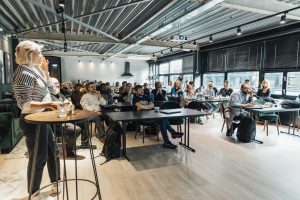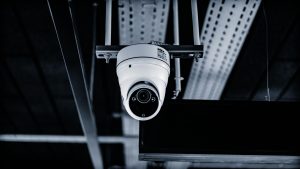Advanced Renewable Energy Engineering Course
Course Fee:
Upon completing this Masterclass in Renewable Energy Engineering course successfully, participants will be able to:
• Decide which components are to be used for which purpose
• Articulate the technical challenges for each of the renewable sources
• Distinguish the effects that current energy systems have over the environment
• Describe the main components of different renewable energy systems
• Analyse energy technologies from a systems perspective
• Relate different renewable energy technologies and choose the most suitable based on local conditions
• Perform simple techno-economical assessments of renewable energy systems
• Complete and compare environmental assessments of renewable energy systems and conformist fossil fuel systems
• Describe the fundamentals and main characteristics of renewable energy sources and their differences compared to fossil fuels
• Explain the technological foundation for connecting renewable energy sources
• Plan renewable energy systems that meet specific energy demands, are economically feasible and have a minimal impact on the environment
• Discuss how to utilise local energy resources to achieve a sustainable energy system
Course Content
BASICS OF ELECTRICITY
• Energy: Past, Today, and Future
• Current, voltage, resistance, frequency
• Three-phase systems
• Active, reactive and apparent power
• Relationship between voltage, current and power, power factors
• Peak voltage and phase angle, different phase angles
• A brief history of energy consumption
• Energy & Environment
• Non-renewable energies
APPLICATION
• PV system categories/application
• Introduction to inverters and mounting structures Physical aspects
• PV cell energy output
• Grid-connected and off-grid configuration Components of a PV system
• Overview of PV cell types, PV modules
• Electrical characteristics and the I-V curve
• Definition, Calculation and Example
• Economics of PV systems
SOLAR ENERGY
• Solar Energy in the Past
• Solar Thermal Energy
• Basics of Solar Energy
• Solar Photovoltaic
MARKET
• Introduction to the different CSP technologies
• Annual energy yield and system efficiency
• Capacity factor, water requirements
• Parabolic trough collectors, solar tower, Linear Fresnel, dish Other components of CSP plants
• Heat transfer fluids, thermal storage
• Cost of CSP
OCEAN ENERGY
• Ocean Energy Potential against Wind and Solar
• Tide Energy Technologies
• Wave Characteristics and Statistics
• Wave Energy Devices
• Tide characteristics and Statistics
• Ocean Thermal Energy
• Osmotic Power
• Ocean Biomass
RESOURCE ASSESSMENT
• Hydro turbines (Impulse turbines, reaction turbines, turbine selection)
• Generators (synchronous, asynchronous, permanent magnet generator Costs
• Capital and operating costs
• Intake (arrangement, screens), power canal and forebay tank (power canal, forebay tank)
• Penstock pipe, powerhouse, tailraces Electro-mechanical equipment
GEOTHERMAL ENERGY
• Geothermal Resources
• Geothermal Technologies
COMPONENTS AND FEEDSTOCK
• Supply, storage and conditioning of feedstock, biogas Production: continuous-type digesters, vertical/horizontal digesters
• Digestate and Biogas: Storage, conditioning and utilisation
• Types of CHP units (Gas-Otto motors, Pilot Ignition Gas Engines, Stirling motors, Biogas micro-turbines, Fuel cells)
• Biogas upgrade
• Utilisation of digestate
• Energetical conversion of biogas
• Direct combustion, combined heat and power (CHP) generation
• Digestate as fertiliser, impacts of the utilisation of digestate
• Handling of digestate
SYSTEM COMPONENTS
• Structure of small hybrid power systems
• Behaviour on a sample day, different set-ups
• Adding storage, energy efficiency and demand management
• Economic evaluation
• Cost structure of hybrid systems
• Levelized cost of electricity (LCOE)
• Generator minimum loadings
• Dynamic system behaviour
• Mini-grid vs. single household system
Methodology
The training methodology integrates lectures, interactive discussions, collaborative group exercises, and illustrative examples. Participants will acquire a blend of theoretical insights and hands-on practical experience, emphasizing the application of learned techniques. This approach ensures that attendees return to their professional environments equipped with both the competence and self-assurance to effectively implement the acquired skills in their responsibilities.
DATE:
1ST BATCH: 27th – 30th Jan, 2026
2ND BATCH: 19th – 22nd May, 2026
3RD BATCH: 15th- 18th Sept, 2026
Course Category
- Human Resource and Admin
- Finance and Accounting
- Internal Audit and Fraud Control
- Stores, Procurement and Supply Chain
- Information Technology
- Aviation and Maritime
- Banking, Investment and Insurance
- Business Communication
- Construction Management & Civil Engineering
- Engineering, Instrumentation and Maintenance
- Entrepreneurship and Business
- Hotel & Hospitality Management
- Law and Contract Management
- Management and Leadership
- Project Management
- Public Relations
- Public Sector
- Sales, Marketing & Customer Service
- Secretaries & Personal Assistants
- Transport & Logistics
- Security and Safety
More Courses
VENUE
25, Queen street, Alagomeji Bus Stop, Yaba, Lagos









